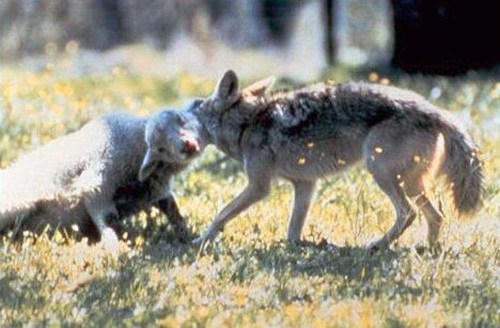Oregon wildlife commission calls for banning coyote hunting contests
Published 11:35 am Monday, December 19, 2022
SALEM — State wildlife officials are moving to outlaw coyote hunting contests in Oregon.
The governor-appointed Fish and Wildlife Commission, which oversees the Oregon Department of Fish and Wildlife, met Dec. 16 and directed the agency to develop new rules banning organized competitions in which coyotes are hunted for cash or prizes.
Trending
Three previous attempts to prohibit so-called “coyote derbies” have failed in the Oregon Legislature, most recently in 2021.
A coalition of 15 environmental and animal rights groups petitioned ODFW to ban such events, calling them unethical, unsporting and ineffective at controlling coyote populations.
Commissioners denied the petition, but ordered staff to work with the state Department of Justice on rules to stop coyote derbies “in a way that is consistent with its legal authority.”
Commissioner Mark Labhart, of Sisters, defended hunting coyotes as a management tool, such as for predator control to protect livestock. But he worries that sanctioned killing competitions could de-legitimize the practice.
“It is just not good public policy, in my opinion,” Labhart said.
Eight other states have banned coyote derbies — Washington, California, New Mexico, Arizona, Vermont, Massachusetts and Maryland.
Trending
According to the petition, more than 1,000 coyotes have been killed in Oregon during hunting contests in the last four years.
Renee Seacor, carnivore conservation advocate for Project Coyote, one of the groups behind the petition, said that coyote hunting competitions may temporarily reduce populations, though disrupting the animals’ family structures ultimately prompts greater reproduction and migration.
The new coyotes that move in also tend to be younger and less experienced hunters, Seacor added, increasing the likelihood they will prey on easy targets such as livestock or pets.
“Killing large numbers of coyotes as part of an organized contest is inconsistent with science-based management and serves no legitimate wildlife management purpose,” she said.
Despite their personal objections to coyote derbies, members of the commission denied the petition after questioning whether it could be legally implemented.
State law allows the commission to decide the times, places, manner and amount of certain wildlife species that may be hunted. However, the agency cannot set limits on times, places and amount of “predatory animals” as defined by the state Department of Agriculture.
ODA defines predatory animals as “swine, coyotes, rabbits, rodents and certain birds that are or may be destructive to agricultural crops or activities.”
That means farmers, ranchers and their agents may kill these animals legally upon discovery of their presence by poisoning, trapping or other means.
The question now is whether ODFW may prohibit coyote derbies more broadly as a “manner of take” for predatory animals, which is notably not restricted in the statute. Commissioners directed staff to explore that possibility, working with the DOJ.
Merle Reid, a member of the Harney County Natural Resource Advisory Committee, said a single derby can bring between $250,000 and $300,000 to the area, benefitting local hotels, restaurants and other small businesses.
Reid said derby participants were deliberately mischaracterized by the petition.
”The sportsmen who compete in these derbies are avid hunters who participate to showcase their hunting prowess, with enhancement to the survivability of game species by reducing predator load,” Reid said.
The Oregon Farm Bureau, Oregon Cattlemen’s Association and Oregon Hunters Association submitted joint written comments opposing the petition, claiming that such a ban is outside ODFW’s scope.
Todd Nash, a Wallowa County commissioner and president of the cattlemen’s association, said the issue is “a matter of culture” in rural Eastern Oregon.
”I’m not sure why this is a priority,” Nash said. “They’re picking and choosing things that don’t really have an impact on the beneficial use of wildlife dollars. It’s all about the optics.”
Lauren Poor, vice president of government affairs for the Farm Bureau, said the coyote derbies in Harney County have been intentionally timed just before calving season, to reduce predator populations around ranches.
As predator control becomes more expensive, with shorter windows for checking traps, Poor said the state should not be taking away options for communities to deal with the problem.
”They’re forcing communities into these corners,” she said. “We continue to tie their hands, and not give them better options.”










